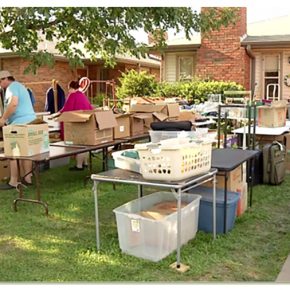Halton police, alongside Members of Provincial Parliament and Carfax Canada, have unveiled a new tool designed to fight vehicle identification number (VIN) fraud in Ontario.
Developed by Carfax Canada and launched approximately five weeks ago, the VIN Fraud Check tool is aimed at helping auto dealers detect fraudulent activity. The tool flags VINs that show signs of tampering, duplication, or if a vehicle has been reported stolen anywhere in North America. Carfax, a leader in vehicle history reporting for the past 25 years, is offering this new service free of charge to users of its vehicle history reports.
Halton police, alongside Members of Provincial Parliament and Carfax Canada, have unveiled a new tool designed to fight vehicle identification number (VIN) fraud in Ontario.
Developed by Carfax Canada and launched approximately five weeks ago, the VIN Fraud Check tool is aimed at helping auto dealers detect fraudulent activity. The tool flags VINs that show signs of tampering, duplication, or if a vehicle has been reported stolen anywhere in North America. Carfax, a leader in vehicle history reporting for the past 25 years, is offering this new service free of charge to users of its vehicle history reports.
“This tool gives dealers essential data to make vehicle transactions more secure,” said Maureen Harquail, CEO of the Ontario Motor Vehicle Industry Council (OMVIC), during a press event at Halton Regional Police headquarters in Oakville.
Shawn Vording, President of Carfax Canada, emphasized the added value of the feature:
“Most Canadian dealers already rely on Carfax when buying or appraising vehicles. This new tool adds another critical layer of protection.”
Key features of the VIN Fraud Check include alerts for:
Potential VIN Cloning: Suggests the VIN may have been duplicated and used fraudulently on another vehicle.
Stolen Vehicles: Flags cars listed as stolen in the Canadian Police Information Centre (CPIC).
Fake VINs: Identifies signs that the VIN may have been fabricated to hide illegal activity.
Halton Regional Police Deputy Chief Jeff Hill noted that this tool could help disrupt the broader criminal ecosystem, including auto theft rings and organized crime networks.
“Stolen vehicles are only valuable if they can be resold or used in further crimes. If we cut off that profit stream, we reduce the incentive to steal,” Hill explained.
Carfax Canada reports a troubling rise in auto thefts across North America, estimating that in 2024 alone, 127,000 vehicles registered in Ontario may have been cloned and 69,000 vehicles have been reported stolen nationwide.
While Halton Region has seen a 40% decrease in car thefts, Hill mentioned a concerning rise in home invasions and carjackings, with over 1,100 incidents reported this year. “It’s sickening to see the human impact of these crimes,” he said.
Hill stressed the importance of collaboration: “Police can’t tackle this alone. We need support from the private sector, new technology, and government backing.”
Although the tool is currently exclusive to Ontario, Vording hopes it will soon be adopted nationwide, including by government and law enforcement bodies.
“A solution in Ontario is only a start — criminals will shift to other provinces,” he said. “Our mission is to make Canada the most difficult place for criminals to traffic in cloned or fraudulent vehicles.”
























1